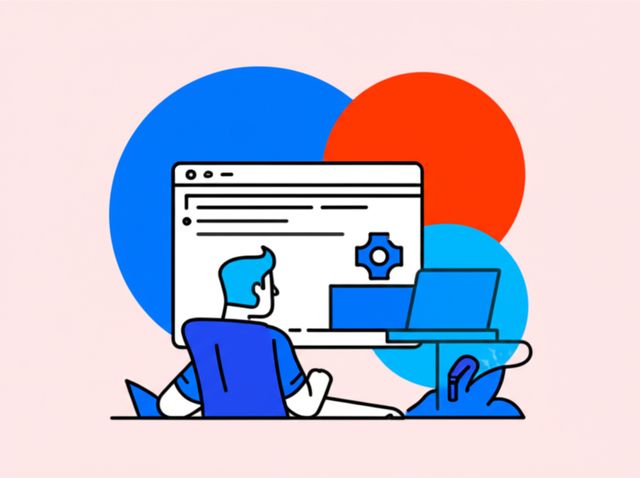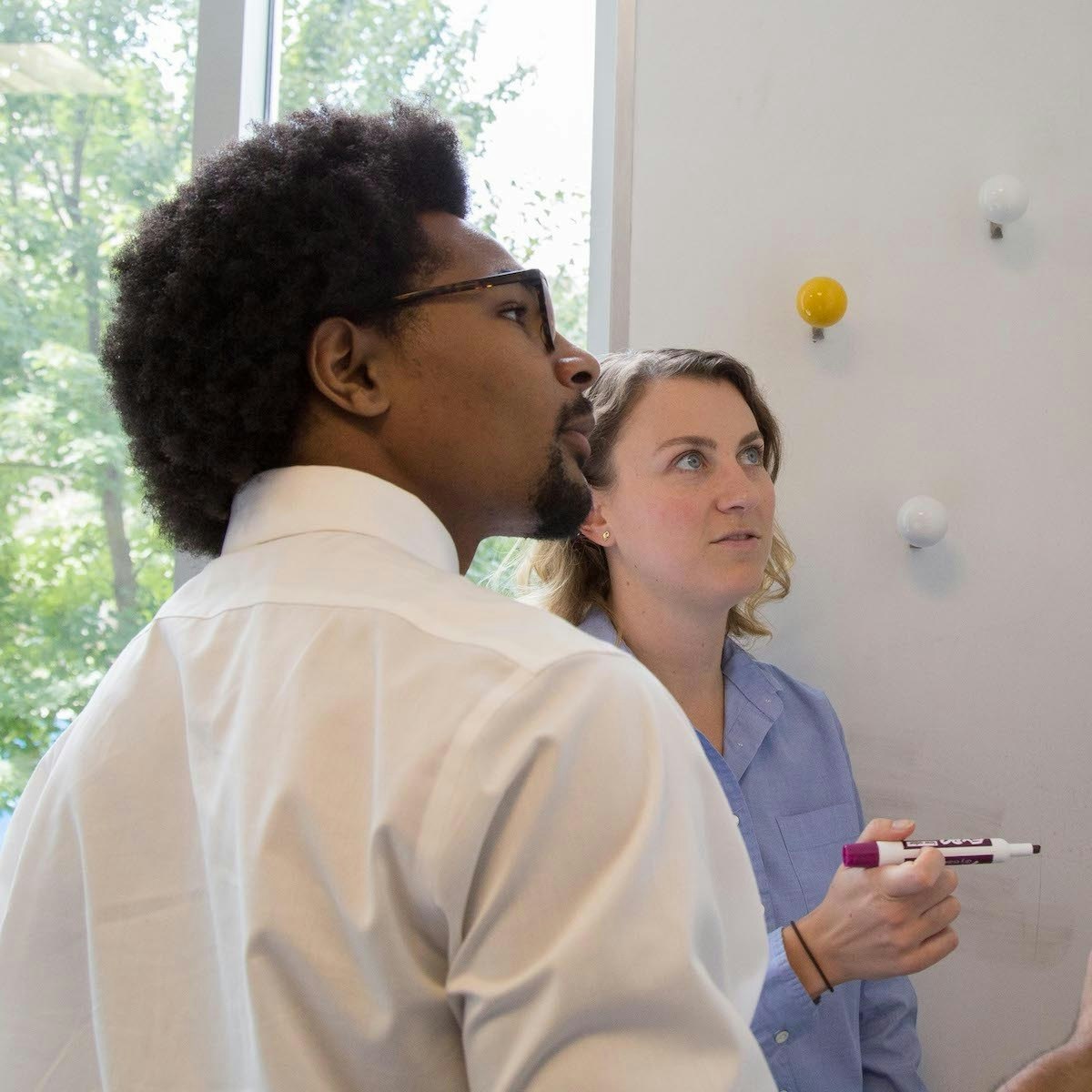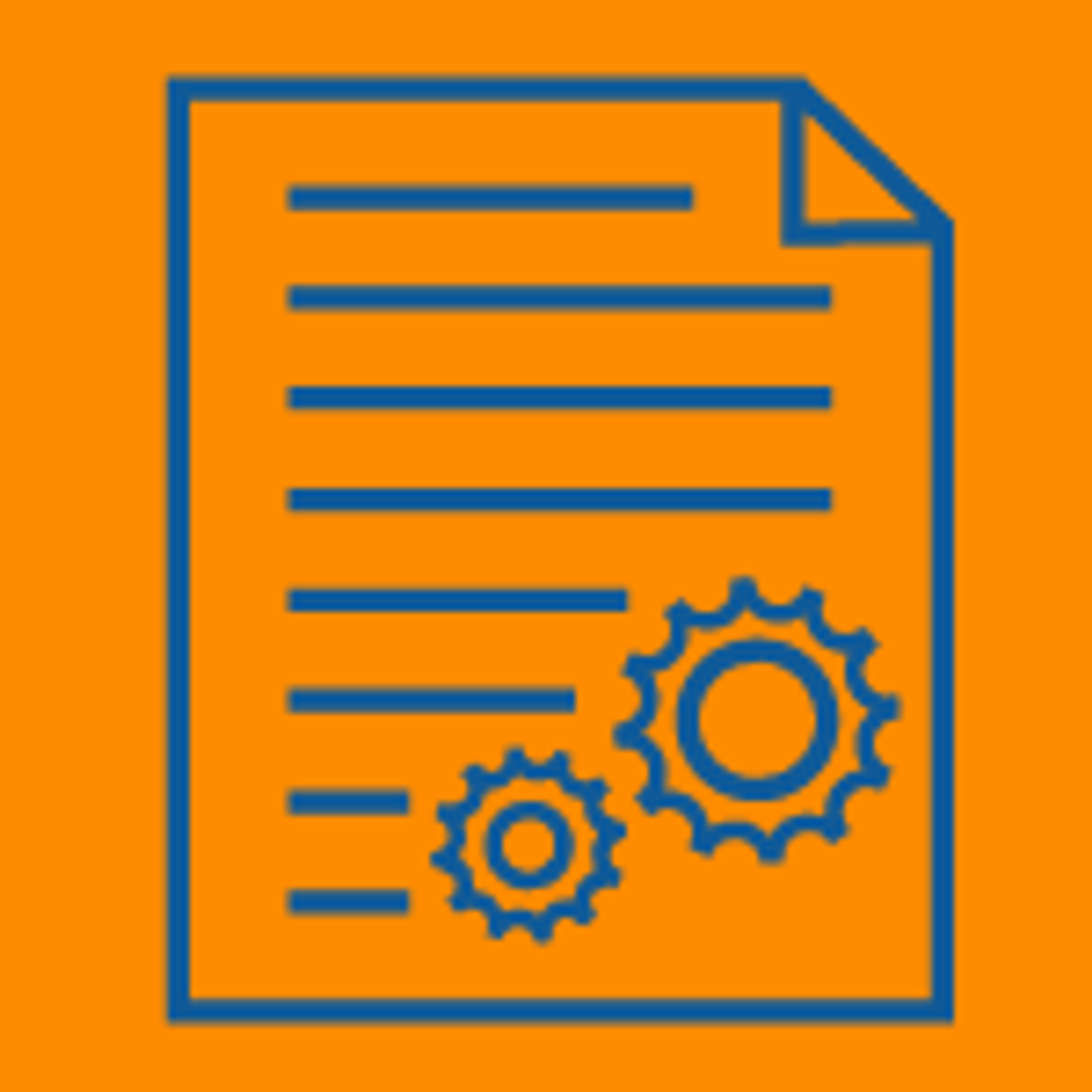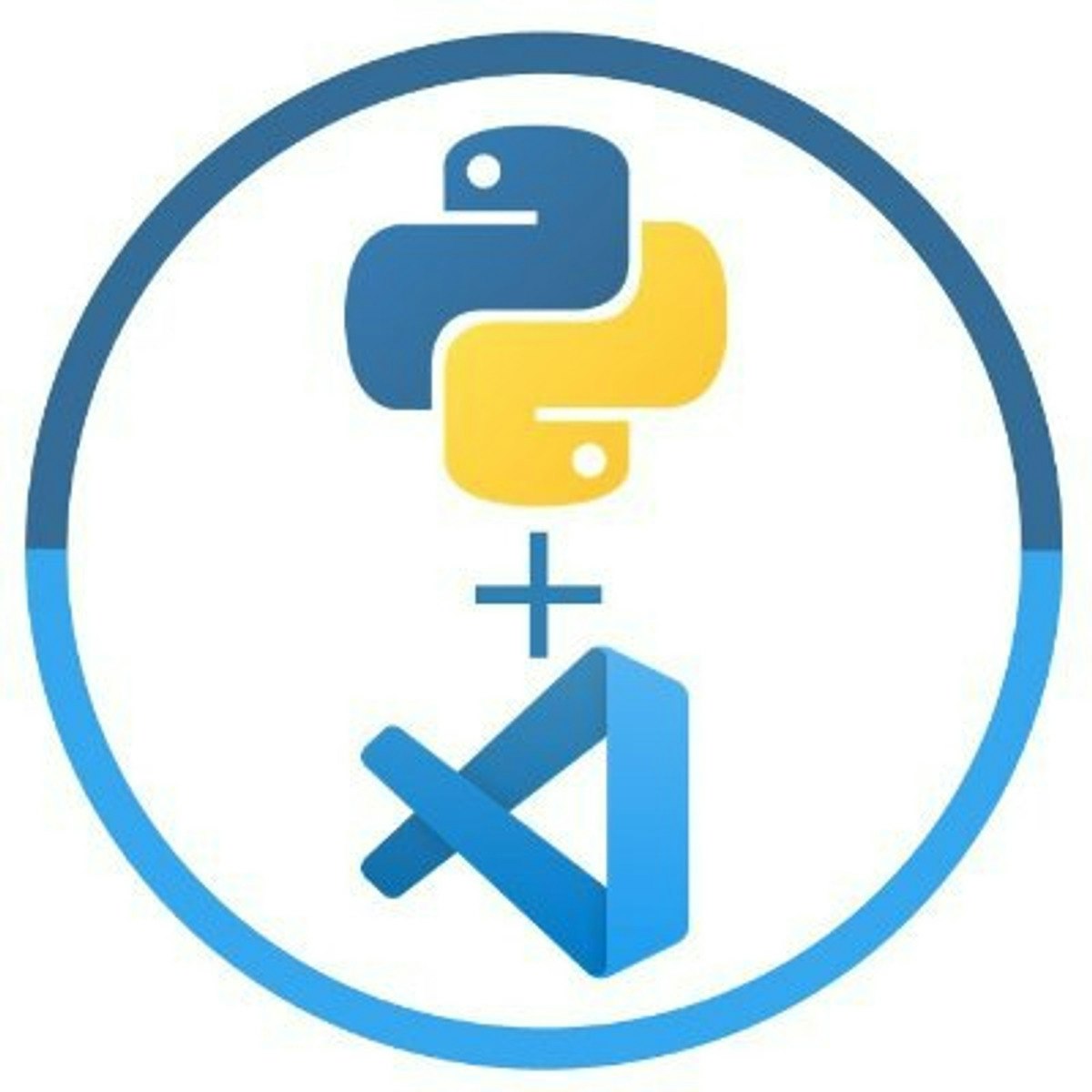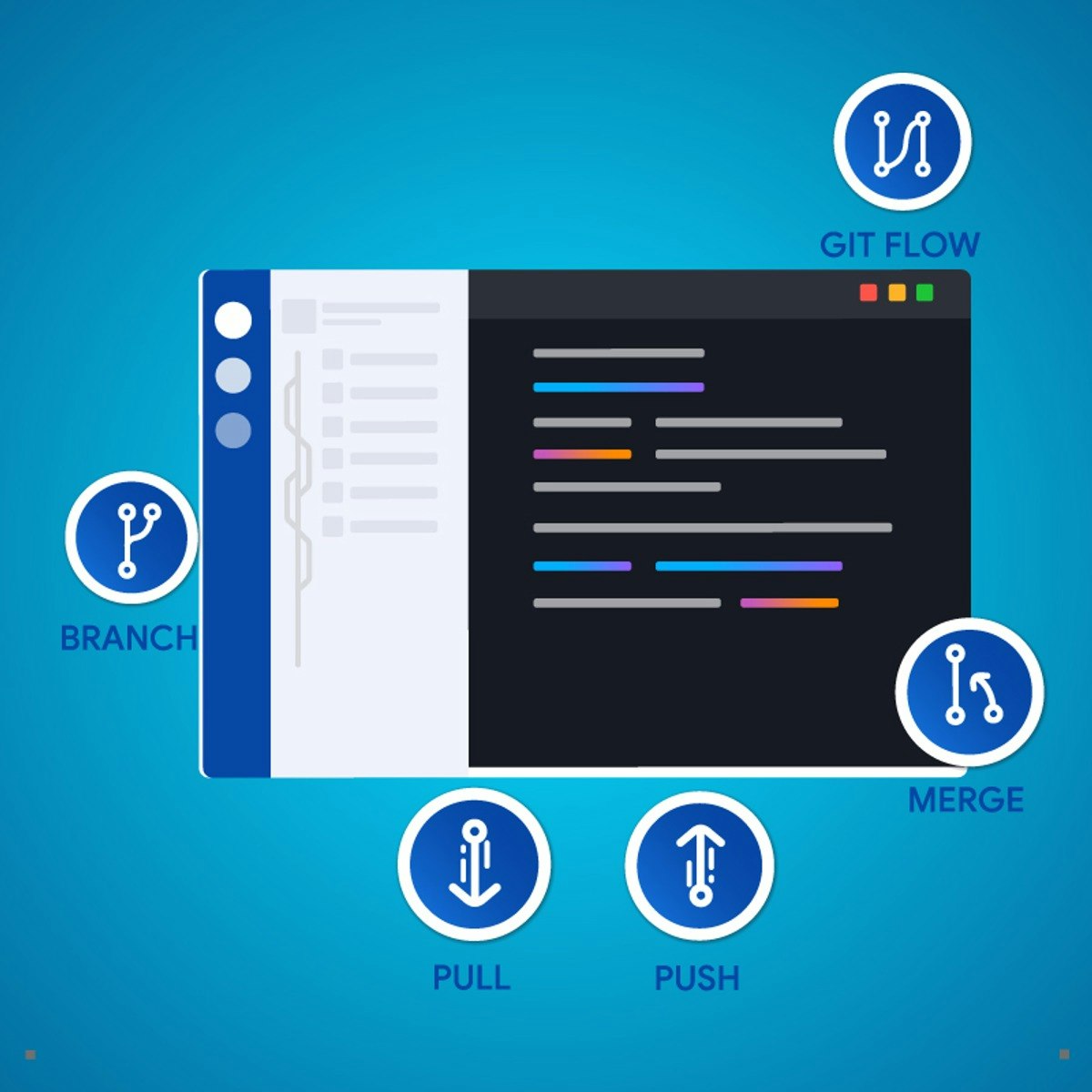Coding
Introduction to Coding
At its core, coding is the process of writing instructions that a computer can understand and execute. Think of it as creating a detailed recipe for a computer to follow. These instructions, written in specialized languages called programming languages, tell the computer what to do, how to do it, and when to do it. Whether it's displaying a webpage, calculating complex equations, or running your favorite mobile app, coding is the fundamental skill that makes it all possible.
Working with code can be an incredibly engaging and exciting endeavor. Imagine the thrill of building something entirely new from scratch, whether it's a dynamic website, a helpful mobile application, or a game that entertains thousands. There's a deep satisfaction in solving complex problems and seeing your logical creations come to life. Furthermore, the collaborative nature of many coding projects allows you to learn from others and contribute to something larger than yourself, constantly pushing the boundaries of what's possible with technology.
Coding is not just one thing; it's a foundational element of many different activities. You'll often hear terms like "programming" and "software development" used alongside "coding." While they are closely related and often used interchangeably, there are subtle distinctions. Coding is the literal act of writing the code. Programming is a broader term that encompasses coding but also includes the planning, designing, testing, and debugging of that code. Software development is an even more encompassing term that includes all aspects of the software creation lifecycle, from initial conception and research to deployment and ongoing maintenance. In essence, coding is a critical skill within the larger domains of programming and software development.
In our increasingly digital world, coding has become a fundamental skill, much like reading or writing. It's the language of technology, and understanding it opens doors to a vast array of opportunities. From powering the apps on your phone to running complex financial systems and enabling groundbreaking scientific research, code is the invisible engine driving much of modern life. Its applicability spans nearly every field and industry imaginable, making it a versatile and valuable skill to acquire.
Core Concepts Behind the Code
To truly understand coding, it's helpful to grasp a few fundamental concepts that are common across most programming languages. These are the basic building blocks that programmers use to create instructions for computers.
Variables, Data Types, and Control Structures: The ABCs of Programming
Imagine you're baking a cake. You'll need ingredients like flour, sugar, and eggs. In programming, "variables" are like containers that hold these ingredients. Each container (variable) has a name, and it stores a piece of information, or "data." This data can be of different "data types," just like your ingredients are different. For example, the amount of flour might be a number (an integer or a decimal), while a baking instruction like "mix well" would be text (a string). Common data types include numbers, text, and booleans (which can only be true or false).
"Control structures" are like the steps in your recipe that tell you when and how to do things. For instance, "if the batter is too thick, then add more milk" – this is a "conditional" statement. It checks a condition and performs an action based on whether that condition is true or false. Another common control structure is a "loop." If your recipe says "stir 50 times," that's like a loop – it tells the computer to repeat an action a certain number of times or until a specific condition is met. These structures control the flow of the program, dictating the order in which instructions are executed.
Online courses can be an excellent starting point for grasping these foundational concepts. Many beginner-friendly courses break down these ideas into digestible pieces with practical examples.
For those new to programming, these courses can provide a gentle introduction to these essential concepts.
Algorithms: The Recipe for Problem-Solving
An "algorithm" is essentially a step-by-step procedure or a set of rules for solving a specific problem or accomplishing a specific task. Going back to our cake analogy, the entire recipe, from start to finish, is an algorithm for baking a cake. In coding, algorithms are the logical sequences of instructions that a computer follows to produce a desired output. For example, an algorithm for sorting a list of numbers would outline the precise steps to compare and rearrange the numbers until they are in the correct order.
Developing good algorithms is a crucial part of programming. It requires breaking down complex problems into smaller, manageable steps and thinking logically about how to solve each step efficiently. The clearer and more efficient your algorithm, the better your program will perform.
Many introductory programming courses will also introduce the concept of algorithmic thinking, which is a valuable skill even beyond the realm of coding.
Functions and Methods: Organizing Your Code
As programs become more complex, it's important to keep the code organized and manageable. "Functions" (sometimes called "methods" in certain programming paradigms) are blocks of code that perform a specific task. Think of them as mini-recipes within your main cake recipe. For example, you might have a function for "creaming butter and sugar" or another for "whisking dry ingredients."
Using functions allows you to break down a large program into smaller, reusable pieces. Instead of writing the same set of instructions multiple times, you can write it once as a function and then "call" that function whenever you need to perform that specific task. This makes your code shorter, easier to understand, and less prone to errors. If you need to change how a particular task is done, you only need to update the function in one place, rather than finding every instance of that code.
Understanding how to create and use functions is a key step in writing well-structured and efficient code.
These courses offer a deeper dive into programming, including how to structure code with functions and methods.
Syntax: The Grammar of Programming Languages
Every programming language has its own set of rules for how instructions must be written – this is called "syntax". Just like English has rules for grammar and punctuation, programming languages have rules for how to use keywords, symbols, and structure your code. For example, some languages require you to end every statement with a semicolon, while others use indentation to define blocks of code.
Following the correct syntax is crucial because computers are very literal. If you make a syntax error, even a small one like a missing comma or a misspelled keyword, the computer won't be able to understand your instructions, and your program won't run correctly (or at all). Learning the syntax of a programming language is like learning the grammar of a new spoken language; it takes practice and attention to detail.
Many code editors and development environments have features like syntax highlighting, which uses different colors for different parts of the code, making it easier to spot syntax errors.
These books are excellent resources for understanding the fundamental principles that underpin most programming languages, including the importance of syntax.
The Landscape of Programming Languages
The world of coding isn't dominated by a single language; instead, it's a diverse ecosystem of different programming languages, each with its own strengths, weaknesses, and typical areas of application. Understanding this landscape can help aspiring coders choose where to focus their learning and help recruiters appreciate the variety of skills available.
Categories of Languages: Not All Code is Created Equal
Programming languages can be broadly categorized in several ways. One common distinction is between high-level and low-level languages. High-level languages (like Python or JavaScript) are designed to be easier for humans to read and write, using syntax that is closer to natural language. They abstract away many of the complex details of how the computer actually works. Low-level languages (like Assembly language or C) are closer to the computer's hardware and provide more direct control over its operations. They are often more efficient but also more difficult to learn and use.
Another categorization is based on how the code is executed. Compiled languages (like Java or C++) are translated into machine code (the language the computer's processor understands) all at once by a program called a compiler before they can be run. Interpreted languages (like Python or JavaScript in a browser) are translated and executed line by line by a program called an interpreter. Scripting languages are often interpreted and are typically used for automating tasks or controlling other software applications.
Understanding these categories can help you appreciate why certain languages are preferred for specific types of tasks.
Popular Languages and Their Domains
While there are hundreds of programming languages, a few have gained widespread popularity due to their versatility, large communities, and extensive libraries. For example:
- Python: Known for its readability and versatility, Python is widely used in web development (especially for server-side logic), data science, artificial intelligence, machine learning, and scientific computing. Its simple syntax makes it a popular choice for beginners.
- JavaScript: The primary language for front-end web development, JavaScript allows you to create interactive and dynamic content on websites. With Node.js, it can also be used for back-end development, making it a full-stack language.
- Java: A robust, object-oriented language, Java is heavily used in large-scale enterprise applications, Android mobile app development, and big data technologies.
- C++: A powerful and efficient language, C++ is often used for game development, operating systems, high-performance computing, and embedded systems where speed and control over hardware are critical.
- C#: Developed by Microsoft, C# (pronounced "C sharp") is widely used for building Windows desktop applications, web applications using the .NET framework, and game development with the Unity engine.
This is just a small sample, and many other languages like Ruby, Swift, Kotlin, Go, and PHP also have significant user bases and specific areas where they excel.
These courses provide introductions to some of the most popular and widely used programming languages today.
For those looking to delve deeper into specific languages, these books are highly regarded in the programming community.
Choosing the Right Tool for the Job
The choice of programming language for a particular project depends on various factors. These can include the specific requirements of the project (e.g., performance needs, platform compatibility), the existing technology stack of an organization, the availability of skilled developers, the size and support of the language's community, and the richness of its libraries and frameworks (pre-written code that simplifies common tasks).
For instance, if you're building a visually rich, interactive website, JavaScript is almost indispensable for the front-end. If you're working on a data analysis project that requires complex statistical modeling, Python with its extensive data science libraries might be the best choice. For a mobile game targeting Android devices, Java or Kotlin would be strong contenders.
Often, it's not about finding the single "best" language, but rather the "right" language for the specific context and goals of the project.
Language Paradigms: Different Ways of Thinking About Code
Programming languages also differ in their "paradigms," which are fundamental styles or ways of thinking about and structuring programs. Some common paradigms include:
- Object-Oriented Programming (OOP): This paradigm, used by languages like Java, C++, Python, and C#, organizes code around "objects," which are instances of classes that bundle data (attributes) and functions that operate on that data (methods). OOP promotes concepts like encapsulation, inheritance, and polymorphism, which help in creating modular and reusable code.
- Functional Programming (FP): Languages like Haskell, Lisp, and to some extent JavaScript and Python, support this paradigm. FP treats computation as the evaluation of mathematical functions and avoids changing state and mutable data. It emphasizes writing pure functions, which always produce the same output for the same input and have no side effects.
- Procedural Programming: This paradigm, seen in languages like C and Pascal, organizes code as a sequence of procedures or routines (similar to functions) that perform specific tasks.
Many modern languages are multi-paradigm, meaning they support more than one style of programming, allowing developers to choose the approach that best fits the problem they are trying to solve.
Understanding different paradigms can broaden a developer's problem-solving toolkit and lead to more elegant and efficient solutions.
If you're interested in exploring the foundational concepts of how computers work and how different languages approach similar problems, these topics provide excellent context.
Essential Tools for Coders
Writing code is just one part of a coder's job. To be effective and efficient, programmers rely on a variety of tools that help them write, manage, test, and debug their code. These tools streamline the development workflow and facilitate collaboration among team members.
Code Editors and Integrated Development Environments (IDEs)
At the most basic level, coders need a place to write their code. While you could technically write code in a simple text editor like Notepad, most programmers use specialized "code editors" or "Integrated Development Environments" (IDEs). These tools offer features specifically designed for coding, such as:
- Syntax Highlighting: Displays different parts of the code (keywords, variables, comments, etc.) in different colors, making it easier to read and spot errors.
- Auto-completion: Suggests code snippets and completes variable or function names as you type, saving time and reducing typos.
- Code Formatting: Automatically formats your code to adhere to consistent style guidelines, improving readability.
- Debugging Tools: Many IDEs include built-in debuggers that help programmers find and fix errors in their code.
- Project Management: Helps organize files and manage larger projects.
- Integration with other tools: Often provide seamless integration with version control systems, build tools, and testing frameworks.
Popular code editors include Visual Studio Code, Sublime Text, and Atom. Full-fledged IDEs, which typically offer a more comprehensive set of features, include IntelliJ IDEA (for Java), PyCharm (for Python), Eclipse (multi-language), and Visual Studio (primarily for .NET and C++).
Learning to use these tools effectively can significantly boost a coder's productivity.
These courses can introduce you to common development environments and how to leverage AI-powered coding assistants.
Version Control Systems: Tracking Changes and Collaboration
Imagine working on a large project with multiple people, all making changes to the same set of files. It could quickly become chaotic, with changes overwriting each other and no easy way to go back to a previous version if something goes wrong. This is where "version control systems" (VCS) come in.
The most widely used VCS is Git. Git allows developers to track changes to their codebase over time, create different "branches" to work on new features or fixes independently, and then "merge" those changes back into the main codebase. It also makes it easy to revert to earlier versions if a new change introduces a bug.
Platforms like GitHub, GitLab, and Bitbucket provide hosting services for Git repositories, along with additional features for collaboration, such as issue tracking, code reviews, and project management tools. Proficiency in Git and familiarity with these platforms are essential skills for most modern software development roles.
Understanding version control is crucial for collaborative projects and maintaining a history of your work. This introductory course to GitHub can be very helpful.
A foundational book on software project management also touches upon the importance of tools and processes.
Debuggers: The Detective's Magnifying Glass
No matter how careful a programmer is, bugs (errors in the code) are an inevitable part of software development. "Debuggers" are specialized tools that help programmers find and fix these bugs. They allow developers to execute their code step-by-step, inspect the values of variables at different points in the program, and set "breakpoints" to pause execution at specific lines of code.
By using a debugger, a programmer can observe the program's behavior in detail, understand how it's processing data, and pinpoint where things are going wrong. This is often much more efficient than trying to find bugs by simply reading through the code or adding print statements to display variable values. Most IDEs come with built-in debuggers tailored to the languages they support.
Learning to use a debugger effectively is a critical skill for any coder, as it can save a significant amount of time and frustration when troubleshooting problems.
The Command Line Interface (CLI): A Powerful Tool
While graphical user interfaces (GUIs) are common for many applications, many developers frequently use the "Command Line Interface" (CLI). The CLI is a text-based interface where you type commands to interact with the computer's operating system or specific programs.
For coders, the CLI is used for a wide range of tasks, such as navigating file systems, running compilers and interpreters, using version control systems (like Git), managing servers, and running various development tools and scripts. While it might seem intimidating at first, learning to use the CLI can make developers more efficient and give them more control over their development environment. Many powerful development tools are primarily or exclusively available as CLI applications.
Familiarity with basic CLI commands is a valuable asset for any aspiring coder.
You can explore more about the tools data scientists use, which often include command-line utilities, in this course.
Learning Pathway: Formal Education in Coding
For those who prefer a structured approach to learning, formal education offers a well-defined path into the world of coding. This route typically involves progressing through different levels of academic institutions, each offering a deeper and more specialized understanding of computer science and software development principles.
Coding in High School: Planting the Seeds
The journey into coding can begin as early as high school. Many secondary schools now offer introductory computer science courses, programming clubs, or extracurricular activities focused on coding. These early exposures can be invaluable for sparking interest and building a foundational understanding of computational thinking and basic programming concepts.
High school programs often focus on visual programming languages like Scratch or introductory text-based languages like Python, making learning engaging and accessible. Participation in coding competitions or local hackathons can further ignite a passion for problem-solving and collaborative creation. Even if a student doesn't pursue coding as a career, these early experiences can foster valuable logical reasoning and problem-solving skills applicable in many fields.
For educators looking to introduce coding in the classroom or for younger learners, these courses offer excellent starting points.
University Degrees: Building a Solid Theoretical Foundation
At the university level, students typically pursue bachelor's degrees in Computer Science (CS) or Software Engineering. These programs provide a comprehensive and rigorous education in the theoretical underpinnings and practical applications of computing.
Key subjects in a typical CS or Software Engineering curriculum often include:
- Data Structures and Algorithms: Understanding how to organize data efficiently and design effective procedures to manipulate that data. This is a cornerstone of efficient programming.
- Operating Systems: Learning about the software that manages computer hardware and software resources, providing common services for computer programs.
- Computer Networks: Exploring how computers connect and communicate with each other.
- Software Design and Architecture: Principles for designing robust, scalable, and maintainable software systems.
- Database Management: Learning how to design, implement, and manage databases to store and retrieve information.
- Programming Languages: In-depth study of various programming languages and paradigms.
- Discrete Mathematics: Mathematical concepts that are fundamental to computer science, such as logic, set theory, and graph theory.
These degree programs aim to produce graduates with strong problem-solving skills, a deep understanding of computational principles, and the ability to learn and adapt to new technologies. Many programs also include capstone projects or internships to provide real-world experience.
These more advanced courses touch upon concepts typically covered in university-level computer science programs.
For students in formal education, these texts are often considered essential reading.
Graduate Studies: Specialization and Research
For those wishing to delve deeper into specific areas of computer science or contribute to cutting-edge research, graduate studies (Master's or PhD degrees) offer the opportunity for specialization. Master's programs often provide advanced coursework in areas like artificial intelligence, cybersecurity, data science, or human-computer interaction, preparing students for specialized roles or further academic pursuits.
PhD programs are research-intensive, culminating in a dissertation that represents an original contribution to the field. Doctoral candidates work closely with faculty advisors, publish research papers, and often present their work at academic conferences. A PhD is typically required for academic positions at universities and for many research roles in industrial or government labs.
Graduate studies allow individuals to become experts in a niche area of coding or computer science, pushing the boundaries of knowledge and innovation.
Coding Bootcamps: An Intensive Alternative
In recent years, "coding bootcamps" have emerged as an alternative, intensive training model. These are short-term, immersive programs (typically a few months long) designed to equip students with practical coding skills for specific job roles, often in web development or data science. Bootcamps focus on hands-on learning, project-based work, and career preparation, aiming to get graduates job-ready quickly.
While bootcamps can be an effective way to gain in-demand skills rapidly, they generally don't provide the same depth of theoretical understanding as a traditional university degree. The intensity and fast pace require a significant time commitment and dedication. When considering a bootcamp, it's important to research its curriculum, instructor quality, career services, and graduate outcomes thoroughly.
Whether one chooses a traditional academic path or a more vocational bootcamp, the goal is to acquire the necessary knowledge and skills to succeed in the dynamic field of coding.
Learning Pathway: Self-Directed Learning and Online Resources
Beyond formal educational institutions, a vast world of self-directed learning opportunities exists, largely powered by the internet. For many aspiring coders, career changers, or even seasoned professionals looking to upskill, online resources offer a flexible and accessible way to learn coding.
OpenCourser, for instance, simplifies the search for quality learning materials by aggregating thousands of online courses and books. Features like detailed course information, syllabi (when available), user reviews, and tools to save and compare options empower learners to make informed decisions. You can browse programming courses to find resources tailored to your specific interests and skill level.
The Power of Online Learning: Tutorials, Documentation, and Communities
The internet is overflowing with resources for learning to code. Online tutorials, often in video or interactive text format, can guide you through programming concepts and specific languages step-by-step. Official documentation for programming languages, libraries, and frameworks provides comprehensive information and is an indispensable resource for any developer.
Online communities, such as forums (like Stack Overflow or Reddit), Discord servers, and social media groups, play a vital role in self-directed learning. These platforms allow learners to ask questions, share their progress, collaborate on projects, and get support from peers and experienced developers. Learning in public and engaging with a community can provide motivation and help overcome challenges.
Many online courses are designed specifically for beginners and can make the initial learning curve much smoother. They often break down complex topics into manageable modules and include quizzes or small coding exercises to reinforce learning.
These courses are excellent starting points for anyone looking to learn coding fundamentals through online platforms.
Building Projects and Portfolios: Demonstrating Your Skills
For self-learners, perhaps more so than for those in formal programs, building projects is absolutely critical. Theoretical knowledge is important, but employers want to see that you can apply that knowledge to create real things. Personal projects, contributions to open-source software, or even small freelance gigs allow you to practice your skills, solve real-world problems, and build a tangible body of work.
A "coding portfolio" is a collection of your best projects, showcased online (often on a personal website or a platform like GitHub). It serves as your resume for practical skills, demonstrating to potential employers what you can do. A good portfolio includes project descriptions, links to live demos (if applicable), and access to your source code. It should highlight the technologies you used and the problems you solved.
Creating a portfolio is an ongoing process; you should continuously add new projects and refine existing ones as your skills grow.
These books offer practical advice and project ideas that can help you build a strong portfolio.
Supplementing and Preparing for Formal Education
Online resources are not just for pure self-learners; they can also be incredibly valuable for students in formal education programs or those preparing to enter them. If you're enrolled in a computer science degree, online tutorials or courses can offer alternative explanations of complex topics, provide extra practice exercises, or introduce you to new technologies not covered in your curriculum.
For high school students considering a coding-related degree, engaging with online learning materials beforehand can give them a head start, solidify their interest, and even help them decide which specific areas of computing they find most engaging. It can also make the transition to university-level coursework smoother.
Professionals already in the field can also use online courses to keep their skills up-to-date with the latest languages, frameworks, and tools, which is crucial in the fast-evolving tech landscape.
If you're looking for resources to supplement your studies or prepare for more advanced topics, consider these options. For those looking to save, exploring OpenCourser Deals can help find discounts on courses and learning materials.
Weighing the Pros and Cons: Discipline and Recognition
Self-directed learning offers tremendous flexibility in terms of pace, schedule, and cost (many resources are free or low-cost). However, it also requires a high degree of self-discipline, motivation, and time management skills. Without the structure of a formal program, it can be challenging to stay on track and know what to learn next.
Formal programs, on the other hand, provide a structured curriculum, direct access to instructors, and a recognized credential (a degree or certificate) upon completion. This credential can be an advantage in the job market, although many employers in the tech industry increasingly value demonstrated skills and a strong portfolio over formal qualifications alone, especially for entry-level roles.
Ultimately, the "best" path depends on individual learning styles, goals, and circumstances. Many successful coders have followed a purely self-taught route, while others have benefited greatly from formal education. A hybrid approach, combining elements of both, is also increasingly common and effective.
For guidance on making the most of online learning, the OpenCourser Learner's Guide offers articles on topics like creating a study plan and staying motivated.
Careers in Coding: Roles and Industries
A strong foundation in coding opens up a vast and diverse landscape of career opportunities across numerous industries. The ability to instruct computers and build software is a highly sought-after skill in today's technology-driven economy. Understanding the various roles and the industries that hire coders can help individuals navigate their career paths.
Common Coding-Related Job Titles
The field of coding encompasses a wide array of specializations, leading to various job titles. Some of the most common roles include:
- Software Engineer/Developer: This is a broad term for professionals who design, develop, test, and maintain software applications. They might work on operating systems, desktop applications, enterprise software, or mobile apps.
-
Web Developer: These professionals specialize in building and maintaining websites and web applications. This role is often further divided into:
- Front-End Developer: Focuses on the user interface and user experience of a website – what the user sees and interacts with (using languages like HTML, CSS, and JavaScript).
- Back-End Developer: Works on the server-side logic, databases, and APIs that power the website from behind the scenes (using languages like Python, Ruby, Java, PHP, or Node.js).
- Full-Stack Developer: Proficient in both front-end and back-end development.
- Mobile Developer: Specializes in creating applications for mobile devices, such as smartphones and tablets (using languages like Swift or Objective-C for iOS, and Java or Kotlin for Android).
- Data Scientist: Analyzes and interprets complex data to help organizations make better decisions. Coding is essential for data manipulation, statistical modeling, and machine learning.
- DevOps Engineer: Works on the intersection of software development (Dev) and IT operations (Ops), focusing on automating and streamlining the software development lifecycle, including build, test, deployment, and infrastructure management.
- Quality Assurance (QA) Engineer: Focuses on testing software to identify bugs and ensure it meets quality standards. This often involves writing automated test scripts.
These titles represent just a fraction of the roles available, and new specializations continue to emerge as technology evolves.
If you are exploring different career paths in technology, these references might be helpful.
A Universe of Industries: Where Coders Work
The demand for coding skills is not limited to "tech companies." While Silicon Valley giants and software houses are major employers, virtually every industry today relies on software and, therefore, needs individuals with coding expertise. This includes:
- Finance: Developing trading platforms, financial modeling software, risk management systems, and fintech applications.
- Healthcare: Building electronic health record (EHR) systems, medical imaging software, telehealth platforms, and bioinformatics tools.
- Entertainment: Creating video games, special effects for movies, music streaming services, and interactive media.
- Retail and E-commerce: Developing online shopping platforms, inventory management systems, customer relationship management (CRM) software, and data analytics tools.
- Manufacturing: Automating production processes, designing control systems, and developing software for robotics and IoT devices.
- Government and Public Sector: Building systems for public services, data management, cybersecurity, and defense.
- Education: Creating e-learning platforms, educational software, and research tools.
This broad applicability means that coders can often find roles that align with their personal interests and values, whether that's in environmental science, arts and culture, or social impact organizations.
Tech Companies vs. Tech Roles in Other Industries
There's a distinction between working for a "tech company" (whose primary business is creating and selling technology products or services) and having a "tech role" in a non-tech company (where technology supports the primary business, such as a bank or a retailer).
Working in a traditional tech company often means being at the forefront of technological innovation, surrounded by other tech-focused individuals. The culture may be fast-paced, with a strong emphasis on engineering excellence.
Conversely, having a tech role in a non-tech industry allows you to apply your coding skills to solve problems specific to that sector. You might be part of a smaller tech team within a larger organization, and your work directly contributes to the company's core mission, whether that's providing financial services, healthcare, or entertainment. This can offer a different kind of job satisfaction and the opportunity to become a domain expert in that industry.
The skills are transferable, and many coders move between these environments throughout their careers. Recent trends even show increased hiring of tech talent by non-tech industries as they undergo digital transformation.
Market Demand and Future Prospects
The job market for individuals with coding skills has been consistently strong, and this trend is projected to continue. According to the U.S. Bureau of Labor Statistics, employment for software developers, quality assurance analysts, and testers is projected to grow much faster than the average for all occupations. This demand is driven by the increasing reliance on software in all aspects of life and business, the growth of mobile computing, the explosion of data, and emerging fields like artificial intelligence and cybersecurity.
While the tech industry, like any other, can experience fluctuations, the underlying need for skilled coders across a wide range of sectors provides a degree of resilience. For those considering a career change or just starting, coding offers a path with strong future prospects and the potential for significant impact.
These courses can provide skills relevant to in-demand specializations within the coding landscape.
To understand the broader context of technology's role in the business world, exploring topics like Information Technology can be beneficial.
Career Progression and Gaining Experience
Embarking on a coding career is a journey that involves continuous learning and development. Gaining initial experience and understanding the typical progression paths are key for anyone looking to build a successful and fulfilling career in this field. It's a path that often requires proactive effort in seeking opportunities and consistently honing one's skills.
The First Steps: Internships, Projects, and Building a Foundation
For those starting, gaining practical experience is paramount. Internships and co-op programs offer invaluable opportunities to work on real-world projects, learn from experienced professionals, and understand the dynamics of a professional development environment. These experiences not only build technical skills but also help develop soft skills like teamwork, communication, and problem-solving.
Personal projects are another excellent way to gain experience, especially for self-learners or those looking to explore new technologies. Building an application, a website, or contributing to an open-source project demonstrates initiative, passion, and the ability to see a project through from conception to completion. These projects become crucial pieces of your portfolio, showcasing your capabilities to potential employers. Volunteer work for non-profits or community organizations can also provide meaningful project experience while contributing to a good cause.
Even if you're feeling daunted by the prospect of landing that first role, remember that every experienced developer started somewhere. Focus on building a solid foundation of skills, creating projects you're passionate about, and actively seeking learning opportunities. Your persistence and dedication will be key.
These courses can help you prepare for technical interviews and understand the software development lifecycle, which are crucial for landing those first opportunities.
Climbing the Ladder: From Junior to Senior and Beyond
A typical career path in coding often begins with an entry-level or junior developer role. In these positions, individuals usually work under the guidance of more senior team members, focusing on smaller tasks, bug fixes, and learning the codebase and development processes of the organization. This is a critical period for absorbing knowledge and refining practical skills.
With experience (typically a few years), junior developers can progress to mid-level roles, where they take on more responsibility, handle more complex tasks, and may begin to mentor junior colleagues. Continued growth in technical expertise, problem-solving abilities, and an understanding of software architecture can then lead to senior developer positions. Senior developers are often responsible for designing major components of software systems, making key technical decisions, and leading development efforts.
Beyond senior roles, paths can diverge. Some may aspire to become lead developers or tech leads, guiding a team of engineers, or move into software architect roles, designing high-level structures for complex systems. Others might transition into engineering management, focusing more on people management, project planning, and strategy, while still maintaining a strong technical understanding.
Specialization and New Horizons: Cybersecurity, AI/ML, Cloud, and Management
As coders gain experience, they often develop interests in specific areas and may choose to specialize. The tech landscape is rich with opportunities for deep expertise. Some popular specialization paths include:
- Cybersecurity: Focusing on protecting systems, networks, and data from threats and vulnerabilities. This can involve roles like security engineer, penetration tester, or security analyst.
- Artificial Intelligence (AI) and Machine Learning (ML): Developing algorithms and systems that can learn from data, make predictions, and perform tasks that typically require human intelligence. Roles include Machine Learning Engineer, AI Researcher, or Data Scientist with an ML focus.
- Cloud Computing: Designing, deploying, and managing applications and services on cloud platforms like AWS, Azure, or Google Cloud. Roles include Cloud Engineer, Cloud Architect, or DevOps Engineer with a cloud focus.
- Data Engineering and Big Data: Building systems for collecting, storing, processing, and analyzing large volumes of data.
Beyond purely technical specializations, experienced coders with strong leadership and communication skills may move into project management, product management, or higher-level executive roles within technology organizations.
These topics represent exciting and rapidly growing areas of specialization within the broader field of technology.
Aspiring to specialize in these areas can lead to roles such as:
The Lifelong Journey: Continuous Learning and Skill Development
One of the defining characteristics of a career in coding is the need for continuous learning. Technology evolves at a rapid pace; new programming languages, frameworks, tools, and methodologies emerge constantly. What is cutting-edge today might be outdated in a few years. Therefore, successful coders embrace a mindset of lifelong learning.
This involves staying updated with industry trends by reading blogs, attending conferences or webinars, taking online courses, and experimenting with new technologies. It also means being willing to learn from colleagues, participate in code reviews, and continuously seek ways to improve one's skills and knowledge. This commitment to ongoing development is not just about staying employable; it's also about keeping work engaging and fostering a sense of mastery and growth.
The path of a coder is one of constant evolution. If you are someone who thrives on learning new things and tackling fresh challenges, this aspect of a coding career can be incredibly rewarding. Remember that the journey of a thousand lines of code begins with a single statement; be patient with yourself, celebrate your progress, and never stop learning.
These books are often recommended for developers looking to refine their craft and deepen their understanding of software development principles.
The Societal Impact and Ethics of Coding
Coding is more than just a technical skill; it's a powerful tool that shapes our world in profound ways. The software created by coders drives innovation, transforms industries, and influences how we communicate, work, and live. With this power comes significant responsibility, and understanding the societal impact and ethical considerations of coding is crucial for practitioners and society as a whole.
Software's Pervasive Influence: Automation, Communication, and Access
Software is at the heart of countless innovations that have reshaped modern society. Automation, driven by sophisticated algorithms and robotic systems, has revolutionized industries from manufacturing to logistics, increasing efficiency and creating new possibilities. Communication has been transformed by social media platforms, messaging apps, and video conferencing tools, connecting people across a_global_village in unprecedented ways.
Access to information and services has also been democratized by software. Online learning platforms make education accessible to millions, e-commerce sites provide global marketplaces, and digital tools offer new avenues for creative expression and civic engagement. The ability of software to process vast amounts of data has also led to breakthroughs in scientific research, healthcare, and our understanding of the world.
This pervasive influence means that the work of coders has far-reaching consequences, often extending beyond the immediate technical scope of their projects.
Ethical Dilemmas: Bias, Privacy, and Security
The power of code also brings with it significant ethical challenges. "Algorithmic bias" is a major concern, where biases present in data used to train AI systems, or even in the assumptions made by developers, can lead to unfair or discriminatory outcomes in areas like loan applications, hiring processes, or even criminal justice.
"Data privacy" is another critical issue. As software systems collect and analyze vast amounts of personal information, ensuring that this data is handled responsibly, transparently, and with user consent is paramount. Breaches of privacy can have serious consequences for individuals and erode trust in technology.
"Security vulnerabilities" in software can be exploited by malicious actors, leading to data theft, financial loss, or disruption of critical services. Coders have an ethical obligation to write secure code and to address vulnerabilities promptly and responsibly. The development of autonomous systems, such as self-driving cars or autonomous weapons, also raises complex ethical questions about accountability and decision-making in critical situations.
Navigating these ethical dilemmas requires not only technical skill but also a strong ethical compass, critical thinking, and a commitment to responsible innovation.
This course delves into the critical area of cryptography, which is fundamental to data security and privacy.
The Open Source Movement: Collaboration and Shared Knowledge
The "open-source software" (OSS) movement is a significant cultural and philosophical force within the coding world. Open-source software is software whose source code is made freely available for anyone to view, use, modify, and distribute. This contrasts with proprietary software, where the source code is typically kept secret by the company that owns it.
The open-source philosophy emphasizes collaboration, transparency, and community. Projects like the Linux operating system, the Apache web server, and programming languages like Python are all examples of successful open-source endeavors, built and maintained by global communities of volunteer and paid developers. The OSS movement has spurred innovation, lowered barriers to entry for new developers and companies, and created a vast repository of shared knowledge and tools. Many commercial software products also incorporate open-source components.
Understanding the principles and practices of open source is important for coders, as they will likely encounter and use open-source software throughout their careers, and may even choose to contribute to open-source projects.
For those interested in the philosophy and practicalities of open-source, the Open Source Initiative provides extensive resources.
The Environmental Footprint of Computing
As our reliance on digital technologies grows, so does the environmental impact of the infrastructure that supports them, particularly large-scale data centers. These facilities, which house the servers and storage systems that power the internet, cloud computing, and many software applications, consume vast amounts of energy, primarily for running the equipment and for cooling systems to prevent overheating. This energy consumption contributes to greenhouse gas emissions, especially if the energy is sourced from fossil fuels.
Water usage for cooling data centers is another environmental concern, particularly in water-scarce regions. Furthermore, the manufacturing of electronic components and the disposal of e-waste also have environmental consequences. There is a growing movement towards "green computing," which focuses on designing, manufacturing, using, and disposing of computing resources in an environmentally sustainable way. This includes efforts to improve energy efficiency in data centers, utilize renewable energy sources, design more sustainable hardware, and promote responsible e-waste recycling.
Coders and technology companies are increasingly aware of these issues and are exploring ways to optimize software for energy efficiency and to support more sustainable computing practices.
Future Trends and the Evolution of Coding
The field of coding is not static; it is constantly evolving, driven by technological advancements, changing development practices, and new challenges. Staying aware of emerging trends is important for anyone involved in coding, from seasoned practitioners to those just starting their learning journey. These trends offer glimpses into the future of software development and the skills that will be in demand.
The Symbiosis of AI and Coding: AI-Assisted Development
Artificial Intelligence (AI) and Machine Learning (ML) are not only areas where coders build applications but are also increasingly becoming tools that assist coders themselves. "AI-assisted development" tools, such as GitHub Copilot, leverage AI models trained on vast amounts of code to suggest code completions, generate entire functions, and even help with debugging.
These tools aim to boost developer productivity, reduce repetitive coding tasks, and help programmers learn new languages or frameworks more quickly. While AI is unlikely to replace human coders entirely – as complex problem-solving, architectural design, and understanding nuanced requirements still demand human intellect – it is set to become a powerful collaborator in the coding process. The ability to effectively use AI-powered coding assistants will likely become an important skill for developers in the future.
These courses explore the capabilities of AI in coding and content generation.
The Rise of Low-Code/No-Code Platforms
Another significant trend is the growth of "low-code" and "no-code" development platforms. These platforms allow individuals with limited or no traditional programming skills to build applications using visual interfaces, drag-and-drop components, and pre-built templates. The goal is to democratize software development, enabling "citizen developers" to create solutions for their specific needs more quickly.
While low-code/no-code platforms can accelerate development for certain types of applications (e.g., simple websites, internal business tools, mobile apps with standard features), they are not a replacement for traditional coding in all scenarios. Complex, highly customized, or performance-critical applications will still require the expertise of skilled programmers. However, these platforms may change the nature of some coding jobs, with developers potentially focusing more on building the underlying components for these platforms or handling more intricate integrations and customizations.
This course introduces a platform that incorporates low-code principles for website development.
Venturing into New Frontiers: Quantum Computing and Beyond
Emerging areas like "quantum computing" promise to revolutionize computation by leveraging the principles of quantum mechanics to solve problems currently intractable for classical computers. Programming quantum computers requires entirely new paradigms and specialized programming languages. While still in its early stages, quantum computing has the potential to impact fields like drug discovery, materials science, cryptography, and complex optimization problems.
Other evolving areas include advancements in blockchain technology beyond cryptocurrencies, the continued expansion of the Internet of Things (IoT) with its unique programming challenges for embedded devices, and developments in areas like augmented and virtual reality (AR/VR) which demand new approaches to user interface and interaction design.
These frontiers will create new demands for specialized coding skills and offer exciting opportunities for those willing to explore uncharted technological territories.
The Ever-Changing Landscape of Languages and Methodologies
Programming languages themselves continue to evolve. New languages are created to address specific problems or improve upon existing ones, while established languages are updated with new features and capabilities. We see trends towards languages that offer better safety, concurrency support, or developer productivity.
Similarly, software development methodologies – the processes and practices teams use to build software – are also in constant flux. Agile methodologies, with their emphasis on iterative development, collaboration, and rapid response to change, have become mainstream. DevOps practices, which promote closer collaboration between development and operations teams, aim to shorten development cycles and improve deployment frequency and reliability. These evolving practices require coders to be adaptable and to continuously learn new ways of working.
The dynamic nature of the coding world means that learning is a continuous journey. Embracing change and being open to new tools and techniques are key to a long and successful career in coding.
For those interested in the fundamental building blocks that make up all software, these classic texts remain relevant even as technologies change.
Frequently Asked Questions (Career Focused)
Embarking on or transitioning into a coding career often comes with many questions. Here are some common queries with practical insights to help guide your decisions.
Is coding hard to learn?
The difficulty of learning to code varies greatly from person to person and depends on several factors, including the individual's aptitude for logical thinking, prior experience with technical subjects, the programming language being learned, and the quality of learning resources. Some people pick it up relatively quickly, while others find it more challenging. It's not inherently "hard" for everyone, but it does require dedication, persistence, and a willingness to grapple with abstract concepts and problem-solve.
Starting with a beginner-friendly language like Python and utilizing well-structured online courses or tutorials can make the learning process more accessible. The key is to be patient with yourself, practice consistently, and not get discouraged by initial hurdles. Many find that once the fundamental concepts click, learning subsequent languages or more advanced topics becomes easier. Remember, many successful coders once felt overwhelmed at the beginning of their journey.
These introductory courses are designed to ease beginners into the world of coding.
Which programming language should I learn first?
This is a very common question, and there's no single "right" answer. However, for beginners, languages like Python are often recommended. Python has a relatively simple and readable syntax that is close to plain English, making it easier to grasp fundamental programming concepts without getting bogged down in complex syntax. It's also versatile and widely used in many fields, including web development, data science, and automation, which provides many avenues for future projects and career paths.
JavaScript is another popular choice, especially if you're interested in web development, as it's the primary language for front-end interactivity. Some educators also start with visual block-based languages like Scratch, especially for younger learners or those who prefer a more visual introduction before diving into text-based coding. Ultimately, the best first language depends on your learning style and what you hope to achieve with coding. The most important thing is to pick one and start learning the fundamentals.
Consider these courses if you're deciding on your first language, particularly Python or web fundamentals.
Do I need a Computer Science degree to get a coding job?
While a Computer Science (CS) degree or a related degree in Software Engineering can be very beneficial and is often preferred by some employers, it is not always a strict requirement to get a coding job, especially for certain roles like web development or in companies that prioritize skills and portfolio over formal qualifications. Many successful developers are self-taught or have come from coding bootcamps or different academic backgrounds.
What matters most to many employers is your demonstrated ability to code, solve problems, and learn new technologies. A strong portfolio of projects, contributions to open-source software, and good performance in technical interviews can often outweigh the lack of a traditional CS degree. However, a CS degree does provide a deeper theoretical foundation in areas like algorithms, data structures, and computer architecture, which can be advantageous for more complex roles or long-term career growth.
If you don't have a degree, be prepared to work harder to build a compelling portfolio and network effectively to find opportunities. It's a challenging path, but certainly achievable with dedication.
What are the typical salary ranges for coding jobs?
Coding job salaries can vary significantly based on factors such as location, years of experience, specific job role, industry, company size, and the programming languages and technologies involved. Generally, coding careers offer competitive salaries.
In the United States, entry-level or junior developer salaries might range from approximately $50,000 to $75,000 annually, though this can be higher in major tech hubs or for in-demand specializations. Mid-level developers with a few years of experience can expect to earn in the range of $70,000 to $120,000 or more. Senior developers, architects, and specialized engineers (e.g., in AI/ML or cybersecurity) can command salaries well into six figures, sometimes exceeding $150,000 or even $200,000, particularly with significant experience and in high-cost-of-living areas. According to ZipRecruiter, the average hourly pay for a coding job in the US is around $33.02, with ranges from $13.46 to $54.57. Glassdoor suggests an average annual salary for coders between $53K and $95K.
It's advisable to research salary data specific to your region and desired role using resources like Glassdoor, Salary.com, LinkedIn Salary, or the U.S. Bureau of Labor Statistics. Remember that these are general ranges, and actual compensation can vary.
How do I build a portfolio to showcase my coding skills?
Building a strong coding portfolio is crucial, especially if you're self-taught or new to the field. Here are some steps:
- Choose Quality Projects: Select 3-5 of your best projects that demonstrate a range of skills and the types of roles you're targeting. Focus on quality over quantity.
- Variety is Good: If possible, include different types of projects (e.g., a web application, a mobile app, a data analysis script, a contribution to an open-source project).
- Solve Real Problems: Projects that solve a real problem or automate a task are often more impressive than generic tutorial follow-alongs.
- Write Clear Descriptions: For each project, explain what it does, the problem it solves, the technologies you used, and any challenges you overcame.
- Show Your Code: Host your code on platforms like GitHub and link to it from your portfolio. Ensure your code is clean, well-commented, and follows good practices.
- Live Demos: If your project is a website or application, provide a link to a live demo so employers can interact with it.
- Visuals: Include screenshots, GIFs, or short videos to make your portfolio more engaging.
- Create a Portfolio Website: A simple personal website is a great way to present your portfolio. You can use website builders or create one from scratch if you have web development skills.
- Keep it Updated: Regularly add new projects and refine existing ones as your skills grow.
Your portfolio is your chance to shine and prove your capabilities, so invest time in making it professional and compelling.
Is coding a good career choice for the future?
Yes, coding is generally considered a good career choice with strong future prospects. The demand for skilled coders continues to grow across nearly all industries as technology becomes increasingly integrated into every aspect of business and daily life. The U.S. Bureau of Labor Statistics projects robust growth for software developers and related roles.
While advancements in AI and low-code/no-code platforms may change some aspects of coding work, the fundamental need for individuals who can design, build, maintain, and understand complex software systems is unlikely to diminish soon. Instead, these tools will likely augment the capabilities of coders. Careers in coding offer intellectual stimulation, opportunities for continuous learning, competitive salaries, and the ability to contribute to impactful projects. However, it also requires a commitment to staying current with rapidly evolving technologies.
What non-technical skills are important for coders?
While technical proficiency is essential, non-technical skills (often called "soft skills") are equally important for a successful career in coding. These include:
- Problem-Solving: At its heart, coding is about solving problems. The ability to analyze issues, think critically, and devise effective solutions is crucial.
- Communication: Coders need to communicate effectively with team members, managers, clients, and sometimes non-technical stakeholders. This includes explaining complex technical concepts clearly, writing good documentation, and actively listening.
- Teamwork and Collaboration: Most software development is a team effort. Being able to work well with others, share knowledge, and contribute to a positive team environment is vital.
- Adaptability and Continuous Learning: The tech landscape changes rapidly, so a willingness to learn new things and adapt to new tools and methodologies is key.
- Attention to Detail: Small errors in code can lead to big problems. A meticulous approach and attention to detail are important for writing quality software.
- Patience and Perseverance: Debugging code and solving complex problems can be frustrating. Patience and the determination to see things through are valuable traits.
- Time Management: Especially when working on multiple projects or tight deadlines, effective time management and organizational skills are necessary.
Developing these non-technical skills alongside your coding abilities will make you a more well-rounded and effective professional.
Useful Links and Resources
To further aid your exploration into the world of coding, here are some helpful resources:
- U.S. Bureau of Labor Statistics - Computer and Information Technology Occupations: Provides detailed information on various tech careers, including job outlook, pay, and what they do.
- Stack Overflow: A large online community for programmers to ask and answer questions. It's an invaluable resource for troubleshooting and learning.
- GitHub: A platform for hosting Git repositories, widely used for version control and collaboration on software projects. Exploring open-source projects on GitHub can be a great way to learn.
- Codecademy: Offers interactive online courses in various programming languages and tech skills.
- freeCodeCamp: A non-profit organization that offers free coding certifications through an online curriculum and community projects.
- OpenCourser - Programming Category: Explore a wide range of online courses related to programming and software development.
- OpenCourser Learner's Guide: Find articles and tips on how to make the most of online learning.
This journey into coding is one of continuous discovery and growth. Whether you aim to build the next groundbreaking application, solve complex societal problems with technology, or simply bring your creative ideas to life, the path of a coder is filled with challenges and immense rewards. Embrace the learning process, be persistent, and enjoy the adventure of shaping the digital world.

